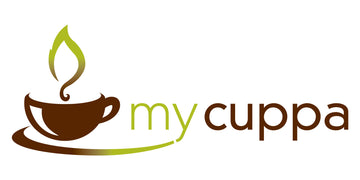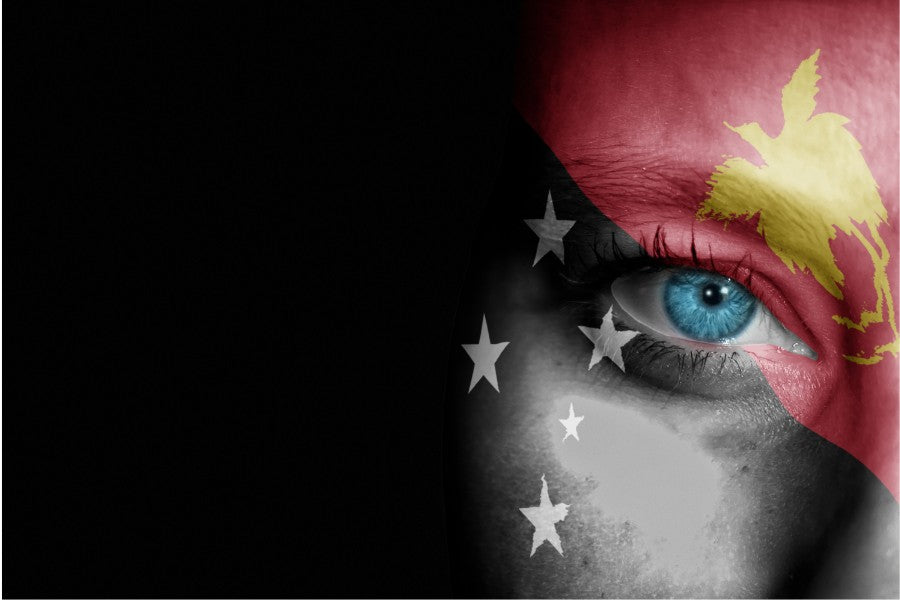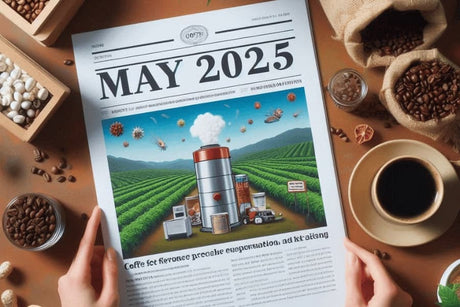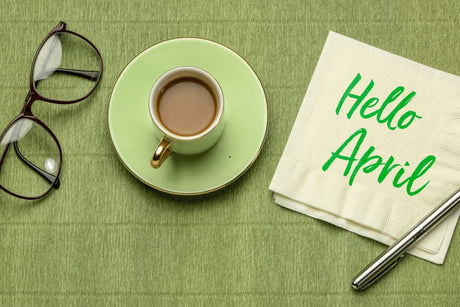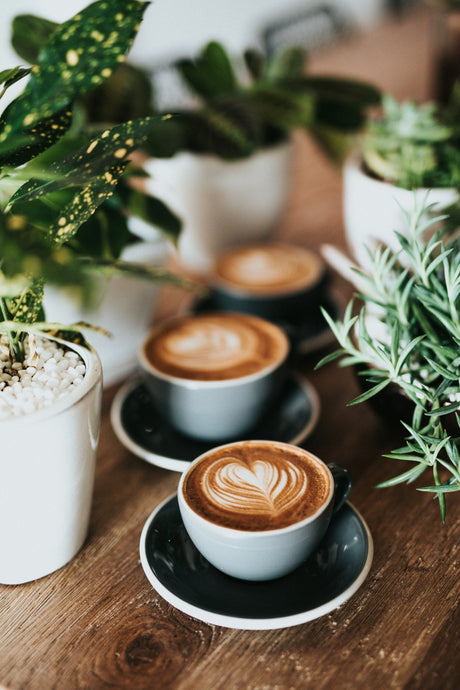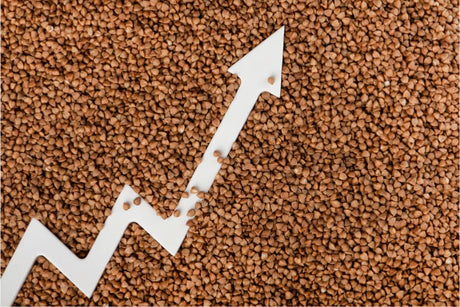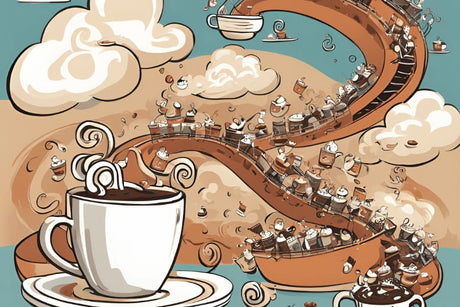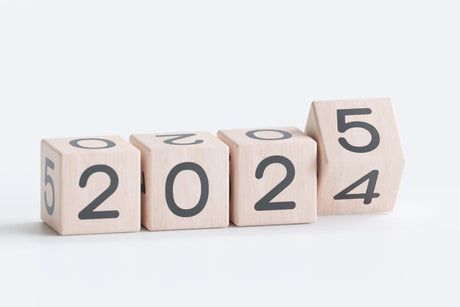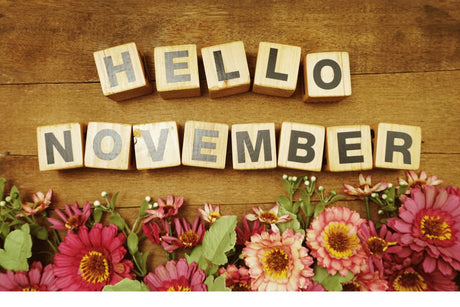“A man is not old until regrets take the place of dreams." - John Barrymore
mycuppa March 2022 Newsletter
This month, we have a rare good news story on parcel shipping with AusPost implementing a significant processing hub in our local area. It's a game-changer.
Global coffee prices continue at 10+ year highs. Despite the wild swings of commodities from the European conflict, sellers of raw coffee are yet again finding new ways to play the market.
Lately, it's been a game of naughty deeds in manipulating inventories. Stockpiling, hiding, under-reporting, call it what you like.
Still, it's contributing to crazy high differentials that continue to put pressure on keeping prices up by, you guessed it, holding the market to ransom, perpetuating the myths around huge supply deficits.
February's Secret Label broke the record despite the shorter month. This month's Secret Label is as good or better, and we are so proud to have it ready now after a few false starts.
It is a bold cup with fantastic chocolate and fruit notes, and whilst you will notice a price difference, it's directly related to the exotic grading of the raw ingredients.
It's been 30 years since I fell in love with Papua New Guinea and their fantastic coffees. Please read our blog on where it all started.
March Secret LabelA deceptively bold coffee with rich, sweet, creamy notes of Swiss chocolate, cherry, mandarin, vanilla pods and salted caramel generates a lush chocolate coating with a lovely long finish.
We have been waiting with excitement to unleash this month's Secret Label, and my goodness, it delivers in spades.
We love this Secret Label's versatility with delicious preserved fruit compote riding across the palate as a black, helping balance out the acids with a super-sweet burst of citrus.
In milk, just like the Honjo Masamune sword, it slices through dairy with consummate ease, standing up in the cup - proud as punch.
For a limited time only - don't miss out.

AusPost improvements
It's not that often we have something positive to say about parcel shipping, so let's try to get some good news out there.
Before we start, it's essential to declare upfront this is not a PR exercise on behalf of AusPost, and we are certainly not aware of any official public information about this new AusPost facility as it just started processing parcels three days ago.
AusPost operates with a spoke and hub design for parcel networks, and that's the same topology every other freight handler implements for their parcel networks.
Spoke & hub topology means that parcels are funnelled into a central hub for each state so that scanning, measuring, weighing routing, etc., is processed on sophisticated, high-speed Xray systems (and also for charging/revenue), the parcel is routed to the correct zone and then loaded for line haul (semi-trailer or train in WA) if it's interstate.
The problem with any spoke and hub design is when the hub is overloaded, breaks down or experiences any resource constraint; everything rapidly grinds to a halt. By now, you are probably guessing that's why sometimes your parcels are delayed – bingo!
Issues with a hub are around 90% likely to be the primary cause of delays.
These spoke and hub designs are a great solution when all the well-known variables remain stable or controllable. However, as we know, situations with parcel networks change rapidly as volumes are spiking often, particularly around incidents, events and holidays.
So the good news is that AusPost has finally taken a big step towards smashing this crazy and inflexible solitary state central hub mentality they had persisted with for too long. We are so excited to see this change in strategy because AusPost has just completed a massive DWS (dimension weigh system) at the Bayswater facility in Melbourne, which also happens to be in our neighbourhood, our local depot.
It's about time we enjoyed a bit of good luck!
All parcels from Victorian merchants or retailers are processed at the Melbourne Parcel Facility (MPF) in Sunshine by AusPost.Nobody gets priority or special treatment, and it's just wall after wall of parcel cargo. Funnelling takes a lot of time as it involves physically moving freight in and out of trucks, through traffic, etc.
Whilst central state hubs are large, they are also a pivotal contributor to regular bottlenecks for parcels moving around the network, even well before the Pandemic. For the past two years, temporary overflow warehouses were leased to accommodate excess inventory and store parcel cargo while waiting for central hub processing capacity.
Our mycuppa parcels will be collected each afternoon by AusPost and directly driven to the new Bayswater processing centre, which is about 7 minutes away. Parcels are measured, weighed and sorted immediately for distribution without waiting for trucks to be loaded, travel across town, wait, unload and then stored before waiting for a processing slot on the two Sunshine DWS's. There will always be long queues at Sunshine, and this new facility near us eliminates those potential delays and effectively removes at least 2x lots of manual handling on the VIC side.
In the short period of a few days since the new Bayswater facility has operated during this week, we have seen significant speed improvements. In many cases, regular parcels were delivered to Melbourne metro customers the following day, which is promising and reminds us of the 2010 – 2014 era before Sunshine became a bottleneck.
This new facility may provide a transit time that beats the old Express service for Melbourne metro customers. Our Melbourne customers should consider using regular instead of Express (all express parcels must go out to the airport and may experience delays).
For our interstate clients, the new processing facility may mean that your parcels are loaded onto line haul semi-trailers faster – no more long delays waiting 24hr+ at Sunshine.
Although we need more data to declare it a success, we have high hopes that there are opportunities for transit time improvements and lower costs and risk delays. Our ability to lodge directly into a substantial hub is a game changer as most of our competitors will still be hampered by multi-handling funnels in 3rd tier facilities with a higher risk of delays.
For those customers that may have lost faith in AusPost during the Pandemic, particularly our Melbourne metro customers, consider giving AusPost another go.
Interstate will always be more complex, and every provider is flawed across all segments. Sendle has good form on Adelaide and Sydney metro segments, so we are watching this new AusPost service to see if it can match.
The recent floods in NSW and QLD may cause problems in the parcel networks over the next couple of weeks, but once we can see clear of abnormal weather events, public holidays, etc., the transit times should continue to improve.

Where it all began
It might have been 30 years ago, but I remember falling hopelessly in love with Papua New Guinea (PNG) coffees as if only yesterday.
Coffee had been a big part of our family during the 1980s, with my hard-working mother running a busy cafe in Newcastle.
In the early days, preparing espresso was complex due to equipment design.
With just three brands of commercial coffee available - all based in Sydney and delivered by local hospitality distributors, Australia's coffee industry was a remarkably different world compared to today.
There was no information about the coffee, its origins or what you could expect to taste, and it came in large, plain silver packaging that was, wait for it, already pre-ground.
The coffee was dark roasted to within a fraction of its dear life, as was the way back then (and seemingly for an extended period afterwards), so with literally zero knowledge or awareness about how to manage freshness or even pull shots on Mum's 3 foot tall, eagle-crested towering Italians brass and copper espresso machine.
That machine looked more like a hot water system than a coffee dispenser, we just naturally accepted that whatever we were buying was a quality product.
Also, the Rep kept reminding us every time he dropped in for a visit and to grab a free cup of coffee - which was remarkably often.
By default, all coffee was served with sugar, depending on customer preference. Hot with 2 was the cry we often heard, and it translated into burning the milk till it smelt awful and then adding two sugars.
Adventure calls
A few years later, between 1991 and 1993, I was fortunate enough to visit Papua New Guinea on business not related to coffee.
It was the first of many trips into PNG during the early 1990s when the country was still under nighttime curfews.
The safety and welfare briefing from the boss was short and sweet - make sure you are in the hotel before dark, don't go out at night and stay on high alert 24/7; in other words, strictly business, no sightseeing, no fun.
My boss was the best manager a person could wish for - always making extra effort to support, empower and mentor those around him whilst always having fun.
Alan lived to travel, to explore and see how far he could stretch the envelope of cramming crazy side trips for sightseeing every time we travelled for business, which was often.
Nevertheless, it was a dangerous period in PNG's history.
Landing at Jackson's airport in Port Moresby, a crowded, chaotic and confusing period ensued trying to find and collect my luggage; there was barely any signage and people in groups walking in every direction, making it impossible to work out how to solve the problem of making a connecting flight to Lae.
Waiting in the airport and asking random strangers the question yielded not much except delightful giggles and cheeky smiles until I sneakily blocked the path of a flight attendant walking briskly through the crowd and was directed to go outside, across to the domestic terminal next door.
I walked into the domestic terminal to the Air Niugini counter, sitting alone in what seemed like an open-sided hangar for 4+ hours in hot, humid weather.
Finally, boarding time arrived, and only six passengers were on the 40+ seat flight.
Peering out the plane's windows revealed some of the most fantastic mountain views on the journey up to high altitudes and over to Lae.
I arrived at Nadzab airport late afternoon, and the person who organized to meet and collect me was nowhere to be found.
Mobile phones did not exist during this period, and the airport was now empty.
The prospect of panic had set in the more I worried about approaching darkness and my boss's earlier warnings.
Nadzab was almost an hour from Lae city, and no Taxis were waiting outside; I was the only person walking around inside, and even the counters were abandoned.
After feeling stranded, I felt incredible relief when my ride arrived and apologized for the delay caused by a road accident.
By now, it was approaching dusk, and the trip back to the Lae International Hotel was like travelling through wild jungles as the driver, a senior manager of the company, took a different route to avoid any further road traffic delays or curfew issues - speeding on dark, bumpy roads, no street lighting and at times unsealed with people and livestock walking alongside it was like something out of a movie.
The car had an elaborate array of 2-way radios, walkie-talkies and other communications equipment and oh yeah, underneath the seats were boxes with guns and ammunition if we needed them!
After a stressful 12-hour journey from Brisbane, I had to change my sweat-drenched clothes upon arriving at the Lae International Hotel.
I was unprepared for the large group of expats my colleague wanted to introduce at the hotel bar.
They were not assembled for my arrival, as I discovered this was a regular nighttime ritual.
People from all over the world were living and working in PNG with exciting backgrounds and stories.
Pilots, ship captains, explosive experts, ex-military special forces, a collection of characters from Indiana Jones.
One guy even told me a story about owning a Diamond mine in South Africa until it got taken over by bandits and his family murdered.
The evening ritual of meeting at the Hotel bar was one of the most essential highlights of the Ex Pat's day, as there was no nightlife or entertainment in Lae due to the curfews.
Drinking alcohol seemed like the primary outlet for fun, and those Expats were high-performance athletes at alcohol consumption.
This was worse than the 6 o'clock swill, with people downing drinks so fast it seemed like the world was about to end.
The morning after was painful, and my only thought was trying to find coffee and food - you know, how that works when the instinct of hangover recovery kicks in.
Down at the breakfast buffet was a beautiful array of tropical fruits, large floral arrangements, toast, and pastries, and I lunged at speed to the pot of brewed coffee and gave it a mighty bear hug.
Relief was in sight.
Sitting at the table and downing food as fast as I could, I casually took the first sip of coffee, and my jaw dropped - what was this coffee? It's incredible, sweet, fruity, clean, smooth, unlike anything else I'd drunk before.
I prefer my coffee without sugar or milk, just the pure and flavorful elixir of the coffee beans. I felt the urge to have another cup of coffee, and soon enough, I had a third one.
However, the excessive caffeine intake was causing me to feel jittery.
I wondered if I was perceiving things differently due to my caffeine addiction or if the hangover from last night's drinking session was causing my headache and clouding my thoughts.
Where am I, and how did this fantastic coffee get here? So many questions.
Later that day, I mentioned the morning coffee experience to a PNG colleague, only for him to laugh and retort, "That's because PNG has the best coffee in the world !".
At breakfast the following morning, with a clearer mind, I took a bit more time to study and savour this delicious brew.
Curiosity was getting the better of me, and eventually, I asked a serving staff what type of coffee was in the carafe.
The lady smiled at me and laughed; it was Goroka.
As the only person in the buffet, she kept whispering Goroka and giggling whenever she passed me - it was hilarious.
It's people that make the difference.
Apart from the beautiful coffee, the delightful and happy nature of the people from PNG made the experience surreal.
Always smiling, laughing and relaxed, the nationals working in the Lae office seemed to enjoy having visitors from overseas, and you could sense they liked explaining the many unique and distinctive aspects of life in PNG, always with a laugh or cheeky giggle.
With a softly spoken manner and wide, infectious smile, Simon was the most senior PNG national working in the Lae office and a Wantok leader.
I had noticed during the day Simon was constantly interrupted by people coming up to him and asking questions - although I could not understand what was being said as it was in a local dialect of pidgin English.
Simon kept apologizing to me about the frequent interruptions as if he was deeply embarrassed.
There were moments when he disappeared for hours as he was required to "resolve" issues unrelated to the company - when I asked a staff member where Simon was.
They explained that Simon was often asked to help solve problems peacefully and promptly off-site, as Wantok members would walk into the office and ask for him.
I spoke with Simon about my coffee revelations in the hotel each morning. His facial expression changed to immense joy with that beaming smile as he told me his family is from areas in Goroka with coffee plantations, and co-incidentally, he was travelling up to Goroka on the weekend to visit the family as there had been ongoing disputes about land titles - something I learned would often arise in PNG.
He asked if I wanted to come along for the trip.
Remembering my boss's edict about staying put and safe in the hotel for three weeks versus the rare opportunity to visit a coffee plantation, you can imagine what any young man of seemingly invincible belief does when faced with unexpected excitement over the prospect of boredom and responsibility.
Journey into Highlands jungle
We arranged for Simon to collect me from the Hotel on Saturday at 9 am as the trip was a solid 5+ hours drive assuming no traffic problems, so I deliberately avoided the Expats Friday night drink-a-thon to give my damaged system a chance of recovery and sat excitedly waiting from 8:40 am with my backpack for Simon to arrive.
Another exciting lesson about life in PNG is that things only partially run to a defined schedule.
Simon casually rolled up, smiling as usual at 1 pm without even the slightest worry of being late, saying later as we were driving that he had to attend to unexpected Wantok duties earlier in the day, and sometimes these matters take a long period of endless talking and negotiations.
The scenery was breathtaking as we passed old vehicles broken down, lots of people walking on the side of the road, animals and glimpses of shanty shelters made from old pieces of corrugated iron.
Closer to Goroka, we passed a coffee mill that processes cherry and parchment from local growers as darkness arrived.
Detouring from the highway and climbing unsealed mountain tracks in the dark was tedious, carefully traversing deep gutters, muddy courses and washed-out areas from previous rains and mudslides.
In some instances, large fallen trees almost as thick as a vehicle tall had temporary paths hacked around them in the dense rainforest terrain. Simon knew this area instinctively.
Arriving at what appeared to be a clearing with building lights spread around level grounds.
The air was smoky, with the smell of wood fires, a reminder of scout camps when I was a teenager.
A cool crispness in the temperature was a welcome relief to the constant humidity in Lae.
About a dozen kids came running and screaming joyfully at the sight of the vehicle pulling up and gathering around Simon, all shouting and singing simultaneously.
Still, they kept a careful distance to peer at me and smile in the semi-darkness of the dim porch lights.
Simon was talking in a rapid dialect, and soon, more than 20 people gathered around, nodding their heads in unison to Simon's words as he pointed towards me.
Some of the kids came to me with their hands out; as I looked at Simon, he nodded and said it's OK, they are greeting you and happy to meet you - he yelled out my name twice, and some echoed my name back like children do with a teacher in class.
The following day, Simon took me for a short walk to an elevated ridge where we looked over the coffee trees growing on the sides of mountains as he pointed to the boundaries - it was vast and spectacular.
He arranged for one of his younger relatives, who had just finished University and spoke good English, to take me for a tour of the farm and the community mill whilst Simon attended to family matters.
Simon's relative stated that due to the area's remoteness in PNG, they couldn't afford or acquire pesticides or fertilizers.
The micro-climate for growing coffee here was almost perfect, with high altitude, rich volcanic soil and plentiful rains.
Roads were the biggest problem, sometimes being washed out a few times a year and cutting off access to the plantation.
Simon's relative also told me a story about Simon being a highly respected man in the community. Simon worked in Lae because it was critical to help support the family, as coffee farming was not producing sufficient income.
He told me their coffee was used only as a cash crop to buy food and other household items, and he had plans to turn it into something bigger.
Some of the family also worked at timber mills to earn money at different times of the year when not required to work on the coffee farms.
I was amazed at the size of the farms and, at the same time, puzzled as to why it was not viable. Of course, in hindsight, I needed to understand how the coffee economy functioned, particularly in developing nations.
When we returned to the homestead, I was gifted 2x 250g bricks of Goroka ground coffee by a helpful relative, and when trying to pay him Kina notes, he refused to take it.
He told me this coffee would have been grown on the family's plantation but thought the coffee was likely to have been blended with other lots for grading, roasting and packaging. T
heir coffee was prized as it was used to lift inferior lots to meet the quality standards. As farmers, they needed to learn the accurate path of the supply chain; just the mills' locations and traceability were lost after that point.
After lunch, I wandered around the homestead and marvelled at how they managed to farm large plantations with limited equipment and infrastructure.
Simon's relative took me to a small tin shed about an hour's drive from the homestead, up and down tricky mountain tracks with dangerous cliffs on some edges.
We sat waiting outside in the car until another 4WD arrived with a gentleman greeting Simon's relative as we went inside.
The smell of freshly roasted coffee was overpowering, but the aroma and smoke of wood fires constantly appeared.
There was a small coffee mill with pulping machines, belts, gadgets and other machinery that looked like it came from the industrial revolution 100 years ago.
Simon's relative asked if I wanted to try some coffee as the host put the kettle on to boil.
He walked around and scooped up roasted beans from various wooden casks, ground coffee into small cups and then proceeded to brew some sample cups.
Wowsa. A black coffee tasting like tropical fruits with soaring sweetness.
The kind host gifted me a bag of beans in a waxed paper bag with a tin tie.
The aromas were heavenly as they wafted through the car on the trip back to Lae.
He told me not to grind the coffee beans until I was ready to drink it.
Aromas filled my hotel room for days afterwards.
The penny drops
When packing my suitcase for the return flight to Brisbane, I was careful to ensure the gifts of coffee would get back with me and pass through customs; I was excited to finally try these excellent coffees at home—over the following weeks, sitting on my deck at home savouring every sip of these delicious coffees and remembering unforgettable moments of that PNG visit, memories that last forever.
My obsession with all things coffee was kick-started when I started enjoying fabulous coffees from Papua New Guinea.
Wild times and unforgettable memories
On subsequent trips to PNG, along with drinking more delicious coffees, I was lucky to spend time at Rabaul and explore World War 2 artifacts at a museum in Kokopo, snorkelling atolls around Simpson Harbor and sampling diverse tropical lifestyles before the Volcano destroyed the town in 1994.
Trying to depart Rabaul a week before Xmas with fully paid and confirmed tickets, the airline operator deliberately over-books seating and unofficially accepts bribes as the only way to ensure a way out.
Facing the prospect of being stranded at Xmas in Rabaul as the airline operator ignored my confirmed ticket, with escalating arguments in the terminal about the "overloading" and families desperate to travel, my local GM walked out to his car, came back into the airport carrying a brown paper bag and then disappeared into an office behind the check-in counter, returning a few minutes later empty handed presumably that was just the right incentive required to ensure I got my seat back.
He said nothing about what happened, but I could work it out and appreciated it.
It was just another chapter in what were always eventful trips into PNG - full of exciting moments.
I was caught in two different armed holdups during broad daylight.
One was amusing, involving a tiny rascal barely four feet tall armed with a spear.
However, the situation was quickly defused.
Still, the other incident was 10 minutes after the payroll was delivered to our company site - a well-planned gig by bandits using crude homemade weapons.
I learned later the Police recovered most of the payroll the next day as it had been a commonly repeated crime by the gang.
On another trip to Lae, rascals had tried earnestly throughout the night to smash my hotel door down around 3 am.
I heard screaming and banging on the door, trying to gain access with a tree trunk as a battering ram.
I had wondered curiously why each room had 5x locks on the inside of the door - 2x sets of chains and 2x slide bolts and right now, that was blatantly obvious and desperately needed.
Standing naked in my room, heart pounding and leaning with all my strength against the door to buffer each attempt at ramming it open until they gave up, it was a scary time with all the shouting in the hallways and outside the grounds, none of it I could understand.
Rascals had slipped hotel guards some alcohol earlier in the evening, and the guards had passed out asleep.
The commotion went on for what seemed like more than an hour before they eventually left.
During the melee, I tried to call reception, but there was no answer, which only worsened my paranoia.
Despite the calm and quiet surroundings in the morning, it took all my courage to exit the room and walk down to hotel reception.
Expecting danger at any moment, from my technician's tool case, all I could think of was a small retractable knife and a large screwdriver that I concealed into my socks as defensive weapons in case of confrontations, which was not a good idea as it made walking difficult.
Of course, all the advice I had been given beforehand was to avoid any resistance or conflict and let them take whatever they wanted, and yet here I was preparing for battle - foolish young men never take advice, it seems.
When I asked the gentleman at reception about the commotion during the night, he looked at me puzzled and said, "What?" as if I had been dreaming.
I assured him it was no dream - my sore and bruised body from pushing against the door was a subtle reminder of the reality.
And just when I thought danger levels couldn't be exceeded any further, a bad storm and communications failure in Port Moresby knocked out computer systems. Being in Lae then, I had to get to Port Moresby urgently.
No seats were available on the daily Air Nuigini turbo-prop, so they booked me on the "milk run" cargo flight - the eponymous DHC-6 twin-otter from Nadzab via a few "stops" on the way that nobody warned me about.
I'd been in Twin Otters dozens of times before on the regular half-hour Aeropelican service from Belmont airport in Newcastle as the only way to connect to Sydney flights for interstate or international trips.
With an empty fuselage except for a solitary jump seat behind the cabin, as soon as I sat down, the airport worker told me to sit in the left seat of the cabin - like a pilot, this was indeed exciting.
The fuselage was empty, and soon after I sat down, they hurriedly filled it with sacks and cargo, including the jump seat, so I was the only passenger.
Steaming humidity, heavy clouds and as I waited in the co-pilot's seat, I could hear an American accent outside the plane arguing with the airport staff outside, "What do you mean it's 550kg overweight? I'm not taking off, nope, fix it or else I'm walking away!".
Some adjustments were made to the cargo, and finally, the pilot sat down in his seat, mumbling "idiots" and turning to me to say "Hello", "buckle up, boy".
All I could smell was scotch, whiskey, or some alcohol, and my heart raced into a panic.
The pilot's playing with the dials, the plane is moving, and I'm peering out the small screen ahead as we take off.
Nadzab airport is a volcanic crater with steep mountains around the landscape. Clouds are low, visibility is almost zero, and the plane is climbing as fast and hard as possible.
The pilot is sweating bullets and reeking alcohol.
It's noisy; we can't see anything except grey clouds.
The pilot keeps twisting his neck to stare out the windows, and it's obvious he is searching for something when I yell out, "What are you looking for ?" and he snaps back "Bloody mountains...... these bloody mountains are so dangerous, can't see a thing".
At that moment, I sharpen my gaze to look sideways, and there's a dark mountain cliff face barely 20 metres away as clouds clear - terrifying.
That was too close for comfort and a way to overdose for any adrenaline junkie.
The 4+ hour plane trip involved four heart-stopping landings on the sides of mountains en route; these were not proper airports but short grass strips designed for minimal tolerance with rock walls at the ends and turning around the plane by hand for take-off.
One landing was so scary we bounced back up into the air twice after touching down on a "non-flat" landing zone, finally stopping barely 3 feet from the end.
Despite the risks, PNG is a beautiful country with beautiful people and fantastic coffee.
My love affair with PNG remains just as strong today as it was 30 years ago, and it's the reason we specifically go above and beyond to source the absolute best available lots from this magnificent origin.
Our PNG Highlands coffee is undoubtedly the finest PNG coffee you will drink, and it's one of the best in our line-up.
PNG coffee remains in our DNA, our blends and, most importantly, the core of our coffee soul.
